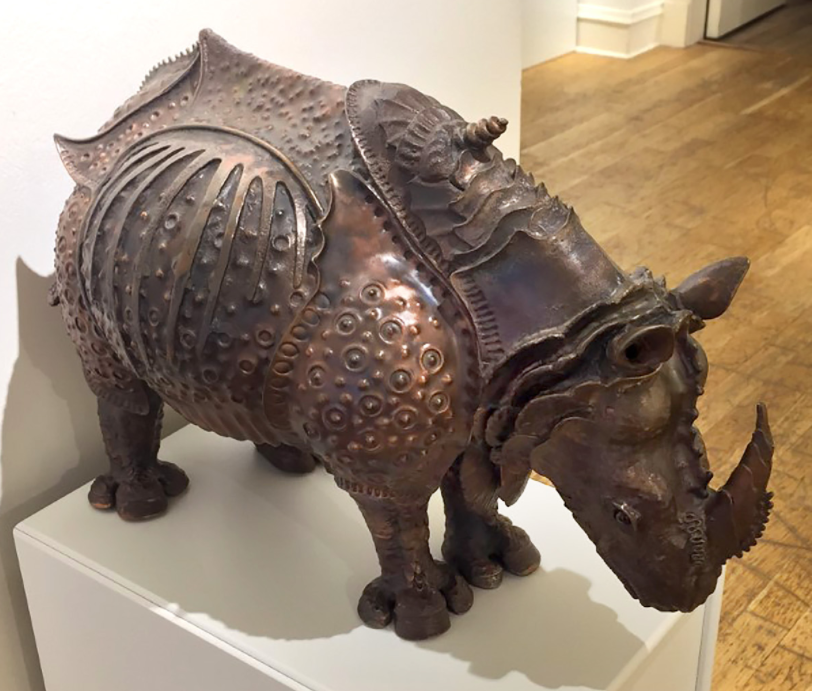This was an exhibition of copper and some bronze replicas at Dancing Light Gallery Edinburgh.
The artist Sue White Oakes is no longer able to work as before the gallery had an exhibition of works for sale from 180 works she made in the last 20 years. The copper interested me and the way she joined pieces using such a hard material to represent the skeletons and outer surfaces of many different animals, feathers, scales and many types of skin. The copper is also coloured using different techniques.
What was most interesting for me was the bronzing of some of the sculptures.
The helpful gallery woman (lost name) worked with Sue White on these at powder hall bronzing and offered a visit to see the Lost Wax Process.
(Also discovered bronzing method is taught and use encourage at Edinburgh Sculpture Workshop).
Few of the pieces could be cast, only 11 of them - most too intricate.
Brian Caster at Powerhall Bronze worked on the Drurer rhinoceros cast.
Lost Wax Method
Mould Making
Silicone rubber is painted on to the original to create the inner mould, then plaster on top to support it.
Can be in two halves or more depending on complexity.
Silicone captures fine detail.
Wax
Wax is poured into the mould parts.
Wax is painted in the cast to about 5mm
Mould is reassembled and wax poured in and sloshed about to join the parts and make a replica
The mould is removed and any repairs made to the wax replica
Steel pins inserted to as a core
Spruing
Technical term for rods that will direct the flow of bronze and let air escape.
Investing
Covering in a slurry of slilica that has hot sand flung at it
Slurry and grit is called ceramic shell mould material
repeated many times until 10mm covering
Burmount ?
Preparation for pouring
Pouring
Bronze heated in crucible and poured in
Release
Chipped open and Spurs removed
Colouring
Looks like Brass now
Patina with heat and chemicals - black brown green etc

James Parker Sculpture using Powder hall bronzing